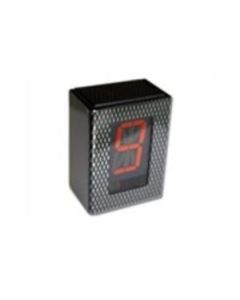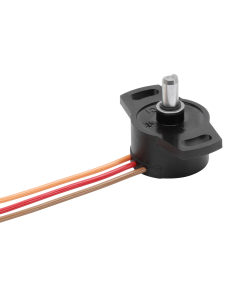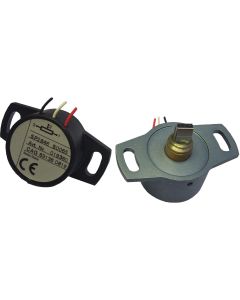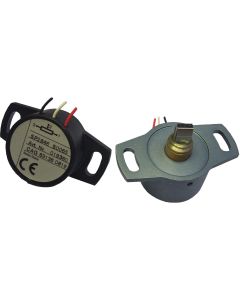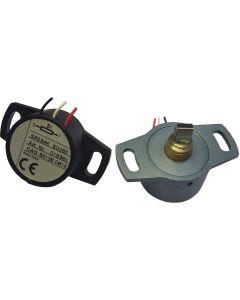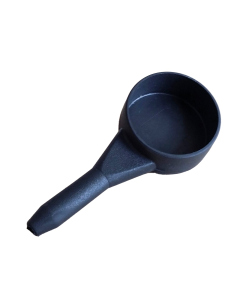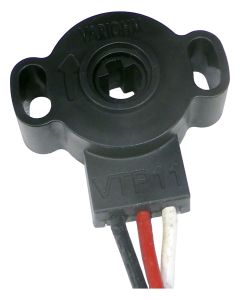- Home
- Rotary Positions Sensors
- Rotary Potentiometer
Rotary Potentiometer
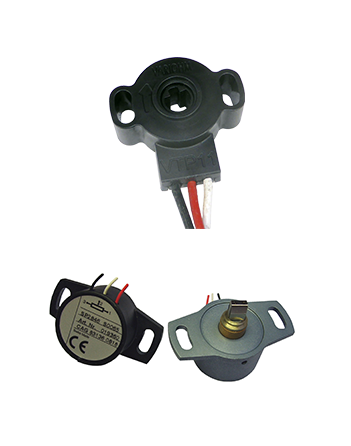
Rotary potentiometers are a type of rotary position sensor designed to measure angular displacement by converting rotational movement into an electrical signal. They consist of a resistive element and a movable wiper. As the wiper rotates along the resistive element, the resistance changes, producing a variable signal that can be used to determine the position of the rotating component. This straightforward mechanism makes them reliable and precise for a wide range of applications.
These sensors come in various configurations to meet different operational requirements. For example, sealed models are available for use in harsh environments, while compact designs suit applications with space constraints. Rotary potentiometers can also be customized in terms of shaft size, mounting options, and electrical characteristics to cater to specific needs. They are compatible with diverse control systems and can operate across different voltage ranges, enhancing their versatility in system integration.
Rotary potentiometers are widely used in many industries. In industrial automation, they help monitor and control the movements of machinery. In motorsport, they provide precise feedback for steering and throttle control, critical for performance optimization. In robotics, they ensure accurate positioning of joints and arms, while in consumer electronics, they are frequently used for interface adjustments, such as volume control in audio equipment.
With their reliability, accuracy, and adaptability, rotary potentiometers remain indispensable in systems requiring precise rotational input measurement.
Short Code:
Credit Limit:
Current Balance:

